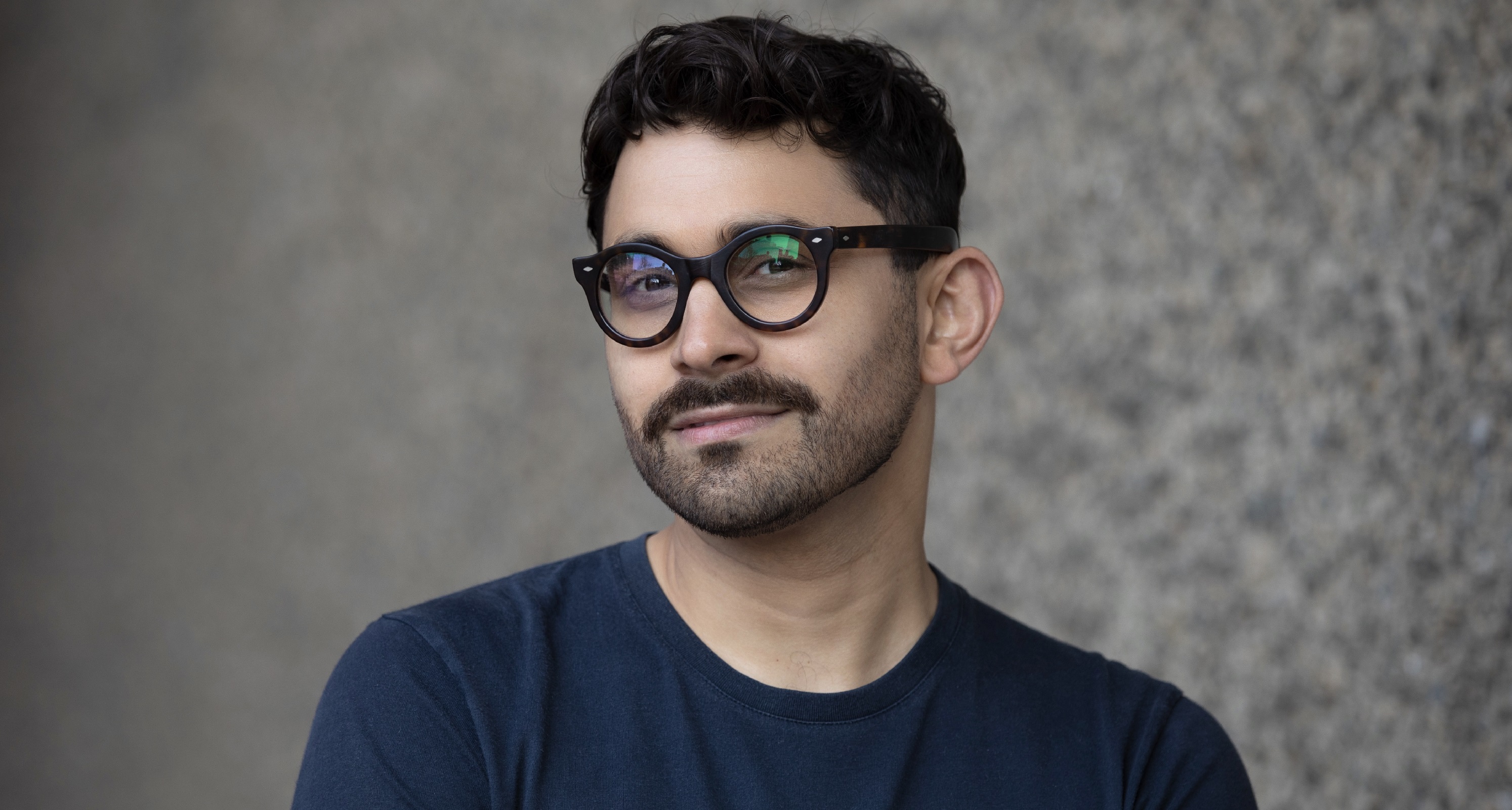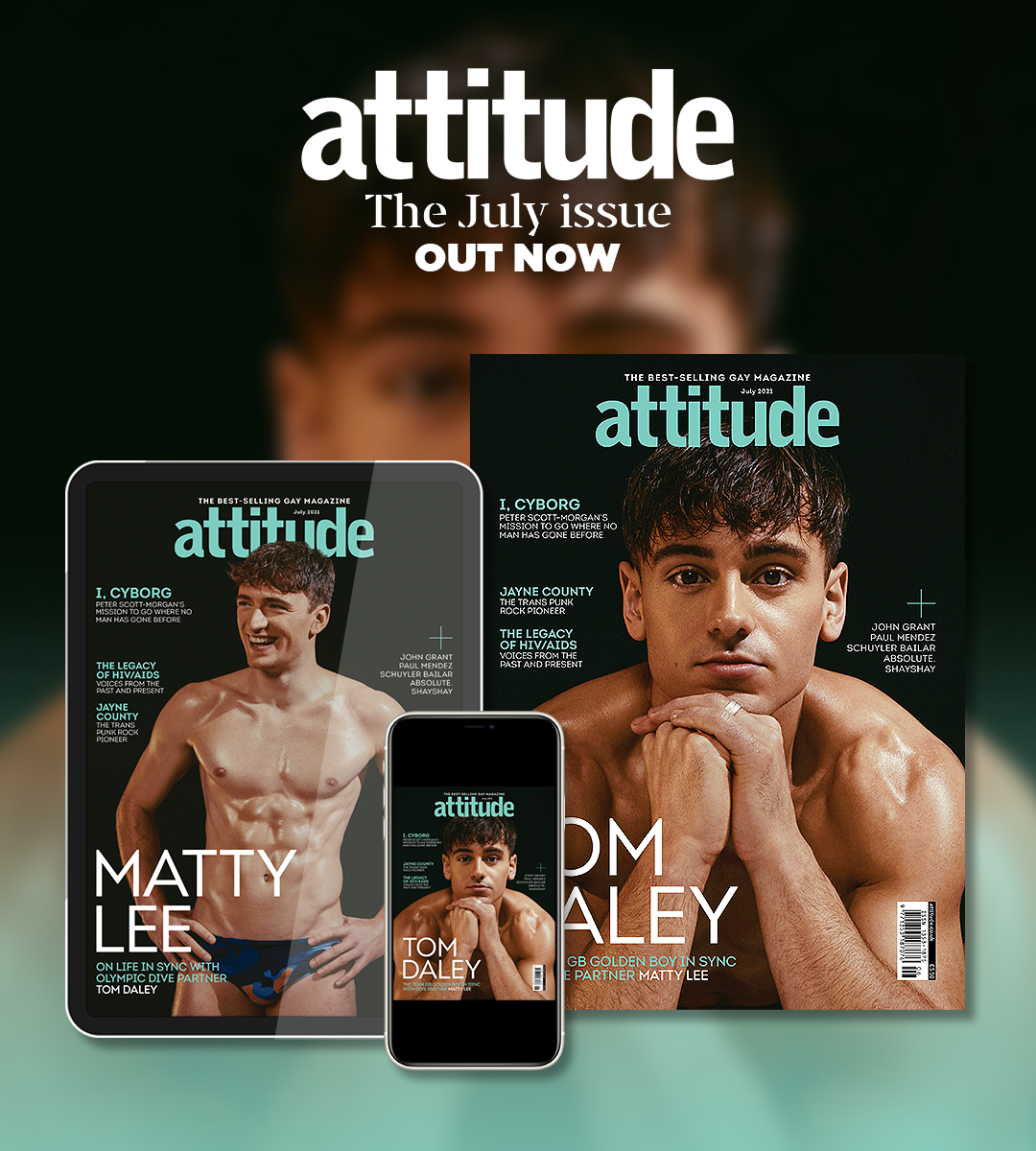After Love director Aleem Khan: ‘I was terrified of being abandoned by my family because of my sexuality’
The writer and director, whose first feature film After Love was released on 4 June, says his experiences helped inform the film.

Words: Alastair James; Interview: Dan Hastings; Pictures; Mark senior
Aleem Khan, the writer-director of After Love, says he was “terrified” of being abandoned by his family because of his sexuality as he discusses his latest film.
The filmmaker, was nominated for a BAFTA in the short film category six years ago for Three Brothers, also talks about the inspirations for his work that he’s taken from real life, and creating a “cooler” version of himself.
Speaking to Attitude in the July issue – out now to download and to order globally – Aleem admits he recognises his privilege as a gay Muslim in the UK who was accepted by his family, which is not the case for everyone.

In After Love, the central character, Mary (Joanna Scanlon) discovers her late husband’s double life and that she isn’t the only one mourning her loss.
“I was terrified of being abandoned by my family because of my sexuality”
In what is likely to be very relatable story to many, the writer-director says coming out was a scary experience, filled with uncertainty over what would happen next.
“I was terrified of being abandoned by my family because of my sexuality”, says Aleem. “Thankfully, I wasn’t, but I think that fear of rejection and the residual anxiety of losing people I love affected me at quite a cellular level and these are hallmarked in my earlier works.
“What is very central in all of my films is what we do when the person or the people that we construct our identities around disappear. How do we recalibrate our sense of self once the people we change for are no longer there?

“When you lose people in your life, from my experience of losing loved ones who were very central to my family dynamic, it’s not something you move on from, you recalibrate. You re-piece yourself and continue. That is what the film is exploring.”
But Aleem also that he has a privilege not afforded to everyone.
“Growing up in the UK, gay, Muslim and with a mixed English-Pakistani heritage was very othering at times, and it continues to be. But I’m also better equipped to deal with that now and I’m also very aware of the privileges I have in being an openly gay man who is accepted by my family — because that is not the case for many people, regardless of if they come from an ethnically diverse or religious background or not.”
“It made me think more broadly about my own experiences”
Aleem is not afraid to let art imitate life, with the character of Mary in After Love created as a love letter to his mother: both are white English women who converted to Islam when they married Pakistani men.
In her quest to uncover the truth about her late husband Mary (Scanlon) travels to the French city of Calais where she meets “the other woman”, Geneviève, whom her husband had been hiding for years. The surprises continue when she meets Solomon, Ahmed’s French teenage son, who happens to be gay.

Joanna Scanlon as Mary in After Love
“My mother is a white English woman and my father is Pakistani. They met as teenagers and when they married, my mother converted to Islam” says Aleem.
“In the late ’70s, her adjustment to a new religion, culture, food and language would have been very difficult, and it made me think more broadly about my own experiences of growing up in a mixed-heritage home.
“I had never seen a character like my mother on screen before. In film and in wider society, we often see Muslim women depicted as peripheral beings; often without agency and one-dimensional. I wanted to see a character that embodied the beauty and complexity that my mother has.
“Solomon is special because he is a cooler version of myself”
Joanna Scanlon’s physical resemblance to his mother intrigued Aleem, as well as her ability to convey huge emotions solely with her face. As for the character of Solomon, the biracial, gay teenage son, Aleem drew inspiration for himself.
“I like to think that I’m in every character in some way, but my relationship with Solomon is special because he is a cooler version of myself that I wish I could have been when I was 16. Solomon has his secrets and insecurities but they are not necessarily tethered to his sexuality.
“The reason he has not told Geneviève that he is gay is not that he is ashamed of it, it’s because he’s just like any teenager who doesn’t want his mum knowing about his private life.”
After Love is available to watch in cinemas now. Read the full interview in the Attitude July issue, out now.
Subscribe in print and get your first three issues for just £1 each, or digitally for just over 1.50 per issue.

